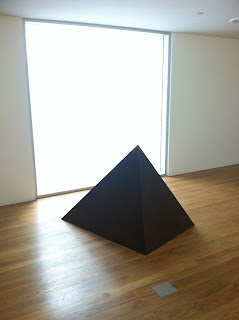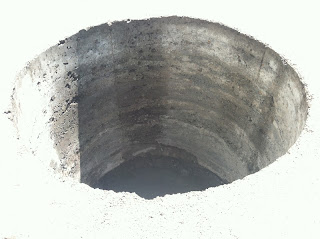





Expecting another suite of exquisitely framed, well-manicured photos, instead, I was reminded how much more important an installation space can be to a viewing experience than is often considered for such a regular showing of smallish black and whites. Not quite leaving with anything memorable in that department, again I was enthralled with how beautiful light, surface, and color can be for their own inter-relations in such a space. (Note subtle interplay of light, shadow, and color in my hand-held installation shots). I guess if I were to attempt any kind of full-circle thinking, perhaps Lassry's previously colored, photo frames were to be thought about as reflection (past elements) and more importantly, something outside of the presence of the still (dead), black and white photograph. To extend this thinking, I guess with this recent body of work, we are to see ourselves more complicit in the viewing experience--peek-a-boo, repetitive, frame by frame, and so on. Come to think of it, I do recall an overall character of deep history and nostalgia within the images. Unfortunately, nothing concrete registers save the distant view of a man, and that feels like too much of a partial story. Perhaps I'm just being selfish here, but I could have used more of the artist's more recent past, a fix for high quality finish in frame and image. Because this showing seems like such a big risk in one sense, and so transitional in another, the only thing to do is default to the "wondering-what-might-be-next" line of thinking. As for now, I'd rather have stayed in a present.

















































